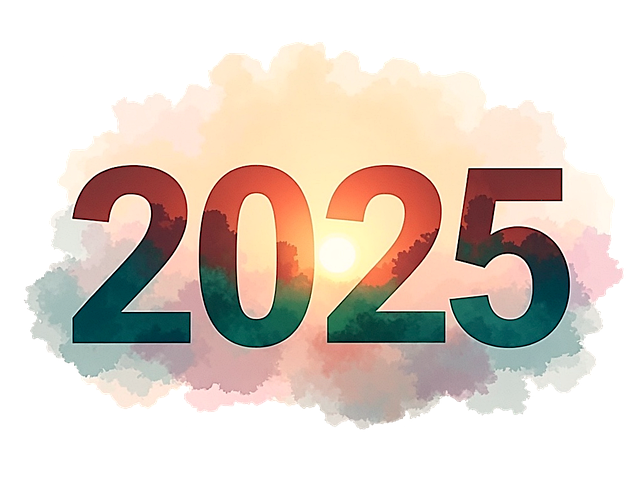By 2025, tech trends like AI/ML, data science, remote work, and EdTech will reshape jobs. In-demand roles include AI ethicists, data scientists, cloud architects, and VR experts. Flexible learning models, adaptive platforms, and cybersecurity will be crucial. Skills in developing AI technologies, analyzing datasets, and designing online curricula are vital. Remote learning and microlearning will enable professionals to adapt efficiently. Combining technical expertise with agile learning will ensure competitiveness in the evolving job market.
By 2025, technology is poised to reshape the job landscape dramatically. From AI and automation to cyber security, cloud computing, and virtual reality, emerging trends are creating a demand for new skill sets and roles. This article explores six future-forward areas that will define the workforce of tomorrow, offering insights into the skills required and opportunities available in this digital evolution.
- Emerging Tech Trends Shaping 2025 Workforce
- AI & Automation: New Job Opportunities
- Cyber Security: Protecting Digital Futures
- Data Science: Unlocking Insights in 2025
- Cloud Computing: A Growing Industry
- Virtual Reality: Jobs of the Future
Emerging Tech Trends Shaping 2025 Workforce

By 2025, several emerging tech trends are poised to reshape the workforce, demanding new skill sets and job roles. Artificial Intelligence (AI) and Machine Learning (ML) will continue to permeate various industries, leading to an increased demand for professionals who can develop, implement, and manage these technologies. Data science and analytics will also remain critical, with organizations seeking experts who can extract meaningful insights from vast datasets to drive decision-making.
Moreover, the rise of remote work and hybrid workplaces due to advancements in communication technologies has sparked interest in flexible learning models such as the flipped classroom model advantages, distance education certificate programs, and project-based learning methodologies. As a result, roles focused on educational technology, online curriculum design, and digital training programs are expected to gain traction. Adaptive learning platforms benefits will likely play a significant role in personalized learning experiences, catering to diverse student needs in a rapidly evolving 2025 landscape.
AI & Automation: New Job Opportunities

As AI and automation continue to transform industries by 2025, new job opportunities will emerge, requiring skills in managing and optimizing these technologies. Professionals who can develop, implement, and maintain intelligent systems will be highly sought after. This includes roles like AI ethicists, who ensure responsible development and deployment of AI, and data scientists, who analyze vast datasets to provide valuable insights. Remote learning best practices and microlearning for busy professionals will become even more essential as these technologies enable workers to acquire new skills on their own terms, improving productivity and efficiency.
Time management strategies for learners will also play a crucial role in leveraging these advancements. With the rapid pace of change, individuals must adapt quickly and effectively manage their time to stay current with emerging trends. By combining technical expertise with agile learning techniques, professionals can navigate this evolving landscape, ensuring they remain competitive in the job market by 2025. Find us at remote learning best practices for more insights on staying ahead in this new era of technology-driven careers.
Cyber Security: Protecting Digital Futures

As we move into 2025, the digital landscape continues to evolve rapidly, bringing with it unprecedented opportunities and threats. At the forefront of this transformation is Cyber Security, which will become increasingly critical in protecting our interconnected future. With more devices and systems going online, from smart homes to autonomous vehicles, the need for robust security measures is paramount. Cybersecurity professionals will play a pivotal role in developing and implementing these safeguards, ensuring that our digital futures remain safe and secure. Project-based learning methodologies and adaptive learning platforms benefits will be instrumental in training the next generation of cybersecurity experts, empowering them with the skills needed to navigate this complex domain.
Immersive virtual reality education offers an exciting prospect for enhancing cybersecurity training, allowing practitioners to simulate real-world scenarios and practice response strategies without risk. As cyber threats become more sophisticated, so too must our defenses. Organizations that prioritize investing in these cutting-edge learning methodologies will be better equipped to defend against emerging threats, ensuring a safer digital environment for years to come. Give us a call at critical thinking exercises online to explore how you can stay ahead of the curve in this ever-evolving field.
Data Science: Unlocking Insights in 2025

By 2025, Data Science will be a pivotal role in shaping industries across the globe. With an explosion of data from various sources, skilled data scientists will be crucial for unlocking valuable insights and driving informed decision-making. These professionals will leverage cutting-edge tools and techniques, including artificial intelligence tutoring systems and critical thinking exercises online, to analyze complex datasets. The future of education trends 2025 promises to equip students with the skills needed to thrive in this data-driven world. Find us at digital citizenship curriculum guidelines for a deeper dive into fostering these essential skills.
Cloud Computing: A Growing Industry

By 2025, Cloud Computing is poised to be one of the most sought-after job roles in technology, driven by the increasing demand for efficient data storage and management. As businesses embrace digital transformation, cloud architects and engineers will play a pivotal role in designing and implementing scalable cloud infrastructure. This growth is further accelerated by the rise of remote work and the need for seamless access to applications and resources from anywhere. With organizations large and small migrating to cloud platforms, professionals skilled in managing hybrid and multi-cloud environments will be highly valuable.
Augmented Reality (AR) in science classrooms and blended learning environments backed by research are also expected to create new opportunities. The integration of AR technologies can enhance educational experiences, making complex concepts more accessible. Additionally, distance education certificate programs catering to the tech industry’s evolving needs will continue to gain traction. To stay ahead, learners are encouraged to explore various training pathways, including online courses and project-based learning methodologies anytime, to future-proof their careers in this dynamic sector.
Virtual Reality: Jobs of the Future

By 2025, Virtual Reality (VR) is poised to transform various industries, creating new and exciting job roles. As VR technology becomes more accessible and immersive, its applications will extend far beyond gaming. In fact, VR is already making inroads into fields like healthcare, architecture, and education. For instance, augmented reality in science classrooms can offer students hands-on experiences with complex concepts, enhancing learning outcomes. Creative writing prompts generator roles will be in high demand to develop captivating VR narratives and interactive environments.
The rise of remote learning best practices, accelerated by the global shift towards digital connectivity, will also shape job opportunities related to VR. As more educational institutions and companies adopt blended learning environments research, there will be a need for experts who can design and implement immersive VR experiences for training and development purposes. This growing field promises to offer dynamic career paths, where professionals can help shape the future of work and education through cutting-edge technology, finding us at these innovative learning spaces.
By 2025, the tech landscape will be defined by emerging trends that create a diverse range of job opportunities. From AI and automation opening new paths to cyber security safeguarding our digital futures, and data science driving insightful decision-making, these fields will shape the workforce. Cloud computing’s growth and virtual reality’s immersive potential further underscore the dynamic nature of technology’s role in 2025 and beyond.
